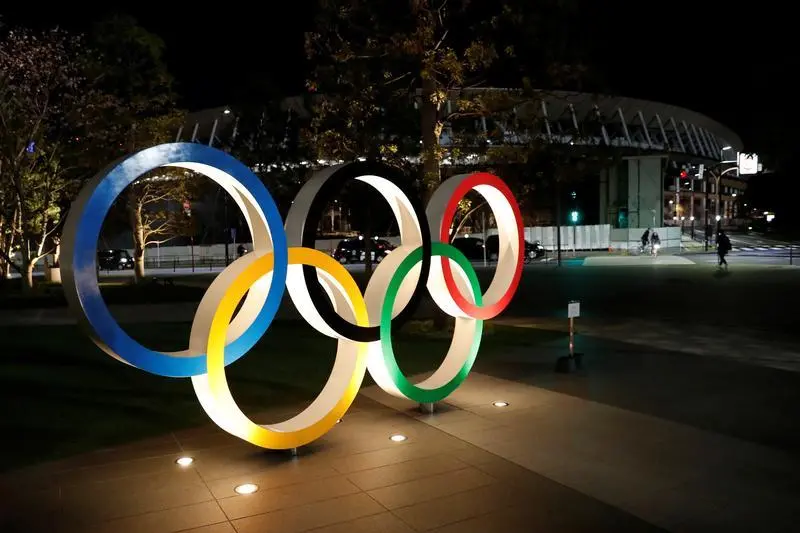PHOTO
TOKYO - Olympic athletes will be given daily tests for the coronavirus during their time in Tokyo for the delayed 2020 Games, organisers said on Wednesday, introducing a number of tighter countermeasures to show the event was still on track.
Spectators from overseas have already been ruled out, and a decision on whether to allow domestic spectators will be taken in June, a few weeks before the Games begin on July 23.
The organisers, who include the Tokyo 2020 organising committee, the International Olympic Committee (IOC), the Japanese government and the International Paralympic Committee, said in a joint statement that they would "deploy all possible countermeasures and place the highest priority on safety".
With less than three months to go to the Games, and the Japanese public increasingly sceptical about their viability, the organisers were finalising a second edition of the "playbooks" that will set the rules for the staging of the event.
Athletes and those in close contact with them will be tested every day, while all participants will be required to record two negative tests before arrival.
Participants will not be allowed to use public transport, and will have to eat in specific locations with special hygiene measures.
Parts of Japan including the capital were put under a new state of emergency at the weekend, and most of the Japanese public think the Games, postponed from 2020 because of the pandemic, should be cancelled or postponed again.
The emergency, which is due to last until May 11, requires restaurants and bars serving alcohol to close along with large stores, cinemas and other commercial facilities; asks firms to let staff work from home; and excludes spectators from big sports events.
Thomas Bach, the head of the IOC, told the organisers that he fully understood the decision to declare the emergency.
Speaking by video-link, he said the playbooks would be strictly enforced, and that the IOC was "fully committed to the successful and safe delivery of the Olympic and Paralympic Games".
An earlier edition of the rules, which came out in February, banned singing and chanting during events and mandated that participants wear masks at all times except when outdoors, or sleeping or eating.
Even without foreign spectators, more than 10,000 athletes, coaches and support staff are expected to arrive in Japan in July.
Though Japan has not suffered as badly from COVID-19 as many other countries, the infection rate has risen back to levels not seen since January, and more and more are from new variants of the virus. On Wednesday, Tokyo reported 925 new cases.
The Games run from July 23 to Aug. 8.
(Reporting by Rocky Swift and Ju-min Park; writing by Elaine Lies and David Dolan; Editing by Kevin Liffey) ((elaine.lies@thomsonreuters.com; +81-3-4563-2748; Reuters Messaging: elaine.lies@thomsonreuters.com))





















